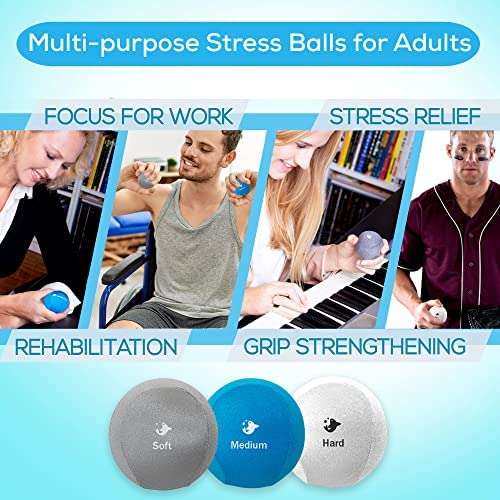Neurologic Rehabilitation
What is neurological rehabilitation or neuro-rehabilitation?
In simple terms, it’s a process to help you or your loved one recover from brain, spinal cord or nerve injury or disease. The goal is to treat your symptoms and improve your function and well-being.
Treating individuals with a neurologic injury or neurologic disease takes compassionate, comprehensive care. Our experienced and trusted teams specialize in physical, occupational and speech-language therapy services. Each therapy helps you to recover faster. Some of the most-treated conditions are spinal cord injury, brain injury and stroke. We also treat conditions like ALS and Parkinson’s disease.
The focus of Dignity Health Physical Therapy’s neuro-rehabilitation services is three-fold:
- Help you improve or maintain function for daily, independent living.
- Improve your balance and mobility for better movement and increased activity.
- Foster your health and quality of life.
Expert services for the complex needs of individuals with:
- Amyotrophic lateral sclerosis (ALS)
- Cerebral palsy
- Guillain-Barré syndrome
- Multiple sclerosis (MS)
- Parkinson’s disease
- Spinal cord injury
- Stroke
- Traumatic brain injury
- Other neurologic conditions
Therapy plans for individual recovery designed to achieve goals of the family
Physical therapy: To increase strength, motor control and stability while walking and standing. Therapy may include:
- Balance exercises
- Body-weight-support training on- and off-treadmills
- Locomotor training
- Fall prevention training
- Electrical stimulation to improve weak or paralyzed muscles
- Caregiver training
- Return to work preparation
Occupational therapy: To address limitations in daily activities like bathing or dressing. Therapy may include:
- Hand and arm strengthening
- Wheelchair training
- Training to adjust for vision loss
- Activities to improve thinking, memory and problem-solving
- Electrical stimulation to improve weak or paralyzed muscles
- Driver evaluation, including pre-driving screen and assessment
- Caregiver training
Speech-language therapy: To improve speaking and understanding, language skills, memory, eating and swallowing difficulties. Specialties include:
- Aphasia – Loss in ability to express and understand words
- Dysarthria – Weak or paralyzed muscles that make speech difficult
- Cognitive communication disorder – Inability to communicate or understand due to illness or injury
- Cognitive impairment – Loss of knowledge and understanding that impacts verbal and nonverbal communication
- Apraxia – Loss of movement and coordination in various muscles
- Dysphagia – Damage or paralysis of throat muscles preventing chewing and swallowing
Advanced neuro-rehabilitation specialty services:
Our therapy programs, designed by our rehabilitation experts, provide individualized treatment. Our specialists have advanced training to provide you with the best care.
The process of neurological rehabilitation takes commitment. Our team works with you and your family every step of the way.
We welcome support of family and friends as part of active rehabilitation. And, we’re here to answer questions and discuss progress at any time.
In addition to brain injury and spinal cord injury rehabilitation, St. Joseph’s offers specialized rehabilitation for other neurological conditions, such as:
- Alzheimer’s Disease and cognitive disorders
- Cerebrovascular disorders
- Cleft and Craniofacial disorders
- Epilepsy
- Guillen Barre
- Neuromuscular Diseases
- Parkinson’s Disease
- Multiple Sclerosis
- Normal Pressure Hydrocephalus
St. Joseph’s neurology rehab services include inpatient and outpatient care, neuropsychological evaluations and community reintegration.
Skilled Rehab Team
Because neurological disorders can lead to physical impairments, as well as changes in thinking, memory, emotions and behavior, patients with these disorders require unique services. Our highly trained rehab team is skilled in the care of neurological disorders. We offer specialized neuro rehab in Acute Therapy, the Downey Rehabilitation Center and in Outpatient Rehab.
Muhammad Ali Parkinson Center
The Muhammad Ali Movement Disorders Clinic provides an outpatient therapy environment tailored to patients with Parkinson’s Disease and other Movement Disorders who are under the care of a Barrow Neurologist.
The Muhammad Ali Parkinson’s Center is a community based program that provides ongoing education and recreational opportunities such as golf and dance classes..
Learn More About Neurology Rehab At St. Joseph’s
For more information about neurology rehab services, call Outpatient Rehabilitation Services at 602.406.3230.
Ashley Scott, PTA
Ashley is the site supervisor at the pediatric location. She earned a bachelor’s degree in dance in 2005 from the University of Arizona and associate degree in the physical therapy assistant program in 2017 from the College of Southern Nevada. Ashley also earned certification as a physical therapy instructor. She believes there is nothing more rewarding than working with kids, maximizing their independence with functional mobility and watching them grow. Ashley has worked with children as young as 6 weeks old all the way up to 20 years of age and with diagnosis such as torticollis, cerebral palsy, Down syndrome, idiopathic toe walking, developmental delay, autism, etc. Ashley’s goal is to create a center culture with a multidisciplinary approach that allows children with disabilities and families to succeed in life.
Dominican Hospital Neurological Rehabilitation Services has a full spectrum of outpatient rehabilitation services for adults and children with many types of neurological conditions.
From stroke and cancer care, to treatment for voice and swallowing problems, to equipment, mobility needs and more, our team of trained experts can help if you have problems related to your neurologic system.
You are a key member of your own care team that includes people with expertise in a range of disciplines:
- Occupational therapists
- Physical therapists
- Speech therapists
After you leave our program, we offer community-based classes to help you stay strong and healthy and prevent future problems.
Therapy Programs That Meet Your Needs
Our therapists treat many different neurological problems and chronic disabilities, including:
- Balance impairments
- Lower extremity amputation
- Parkinson’s disease, multiple sclerosis, amyotrophic lateral sclerosis (ALS)
- Spinal cord injury (SCI)
- Stroke (CVA)
- Traumatic brain injury (TBI)
- Vestibular dysfunction
Our services include:
- Aquatic therapy—We provide skilled physical therapy and classes through Dominican Hospital’s PEP community program at the Simpkins Pool Center.
- Modified Barium swallow studies—We assess the swallow mechanism for people who are having difficulty swallowing safely.
- Neurological physical and occupational therapy—Our licensed staff provides therapy based on an evaluation of your condition. If needed, therapists from different disciplines will work as a treatment team to help achieve the best possible outcome for you.
- Neurological speech therapy—We treat speech, cognitive, linguistic or swallowing disorders.
- Vestibular rehabilitation—We offer treatment to help resolve vertigo symptoms.
Learn More About Dominican Hospital Neurological Rehabilitation
For more information about Dominican Neurological Rehabilitation Services, please call us at (831) 457-7057.
The Dignity Health Rehabilitation Hospital team partners with our patients who have lost their independence because of illness or a traumatic health episode, such as a traumatic brain or spinal cord injury – to give you your best way home.
During the rehabilitation process, our Rehabilitation Institute’s treatment team uses advanced technology and individually-tailored programs that focus on the patient’s capabilities rather than disabilities. This positive approach, combined with our holistic and healing environment, allows our rehabilitation professionals to help our patients find a renewed sense of achievement, strength, and independence.
Your Rehabilitation Hospital Team
All of our rehabilitation programs feature interdisciplinary rehabilitation teams, directed by physiatrists who specialize in physical rehabilitation. These dedicated, caring professionals are committed to helping our patients develop the skills they need to return home or live as independently as possible.
The Rehabilitation Institute team partners with patients during the rehabilitation process, and treatment focuses on patients’ capabilities rather than disabilities.
Therapy Services
The Rehabilitation Institute’s comprehensive therapy programs are personalized and tailored to fit each individual’s needs so you can develop the skills you need to return home or live as independently as possible:
Occupational Therapy (OT) – Teaches self-care skills used for daily living, such as bathing, dressing, eating, and food preparation. Therapists address both cognitive (thought) and perceptual (visual) deficits.
Physical Therapy (PT) – Focuses on movement, assisting patients with walking, teaching wheelchair transfer techniques, and providing orthotic/prosthetic device evaluation and training.
Respiratory Therapy (RT) – Prevents added respiratory problems by helping patients with respiratory muscle weakness or a susceptibility to respiratory complications.
Speech/Language Pathology (SLP) – Improves communication skills through cognitive retraining, increasing functional independence with decision-making, reasoning, memory, and swallowing.
For more information on the Dignity Health Rehabilitation Hospital services, please call (725) 726-2000 or visit www.dignityhealthrehab.com.
Additional resources:
American Spinal Injury Association – www.asia-spinalinjury.org
Brain Injury Association of America – www.biausa.org
United Spinal Association – www.spinalcord.org
National Stroke Association – www.stroke.org
American Stroke Association – www.strokeassociation.org
Amputee Coalition – www.amputee-coalition.org
Paralyzed Veterans of America – www.pva.org
Outpatient rehabilitation helps people regain independence in performing everyday activities and functions following an injury or illness affecting their mobility and motor control, often due to neurological damage.
As part of Dignity Health’s comprehensive neurological services, we offer patients convenient access to outpatient rehabilitation in Arizona. To learn about personalized care at our outpatient rehabilitation centers, Find a Doctor today.
Reasons for Outpatient Rehabilitation
Many neurological conditions can affect a person’s ability to move, speak, and function. Acute treatment in the hospital addresses the immediate physical crisis, and inpatient rehabilitation helps patients and families deal with limitations and prevent further loss of function. It can take a long time, though, to regain strength and function following a neurological injury. Outpatient rehabilitation after discharge from an inpatient setting allows patients to maintain their strength and build on the skills they have already learned.
Specific conditions that may require outpatient rehabilitation include:
Our outpatient rehabilitation services are offered through Barrow Neurological Institute at St. Joseph’s, Chandler Regional Medical Center, and Mercy Gilbert Medical Center.
What Outpatient Rehabilitation Offers
Outpatient rehabilitation gives patients the opportunity to continue their recovery at home. Patients typically visit an outpatient rehabilitation center for a couple hours one or more times a week to receive physical, occupational or speech therapy.
Outpatient rehabilitation is tailored to the patient’s needs and may include:
- Activities of daily living training, including bathing, dressing, feeding one’s self, or driving
- Assistive device training, including using grab bars, canes, and walkers
- Body mechanics training, including body alignment and exercises to improve range of motion, strength, and motor skills
- Environment modifications, including installing handrails, removing area rugs, and raising or lowering countertops, appliances, and furniture
- Neuromuscular retraining to improve hand-eye coordination, visual processing, and nerve function
- Return-to-work programs, including energy conservation skills and ergonomic modifications to the workplace Sensory integration training to improve sensations, touch, balance, and spatial awareness
Your Outpatient Rehabilitation at Dignity Health
When beginning outpatient rehabilitation, a therapist will evaluate your current abilities and review your activity goals in order to plan treatment with the best chance of success.
You will work with your therapist on specific exercises and new techniques. Your therapist will evaluate your need for adaptive equipment such as splints or braces, special eating utensils, writing tools, a wheelchair, or an adapted car to drive. Your therapist also will help you obtain them.
Your rehabilitation team at Dignity Health may include occupational therapists, physical therapists, speech therapists, nurses, psychologists, and physiatrists — doctors who specialist in physical medicine and rehabilitation.
Your team will continually assess your progress and adapt your treatment plan as needed. Healing takes time — your patience, cooperation and determination will pay off.
Neurorehabilitation centers at Dignity Health are dedicated to providing the latest care and personalized treatment for outpatient rehabilitation in Arizona.




